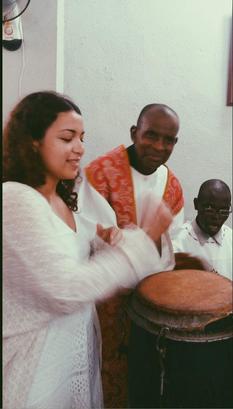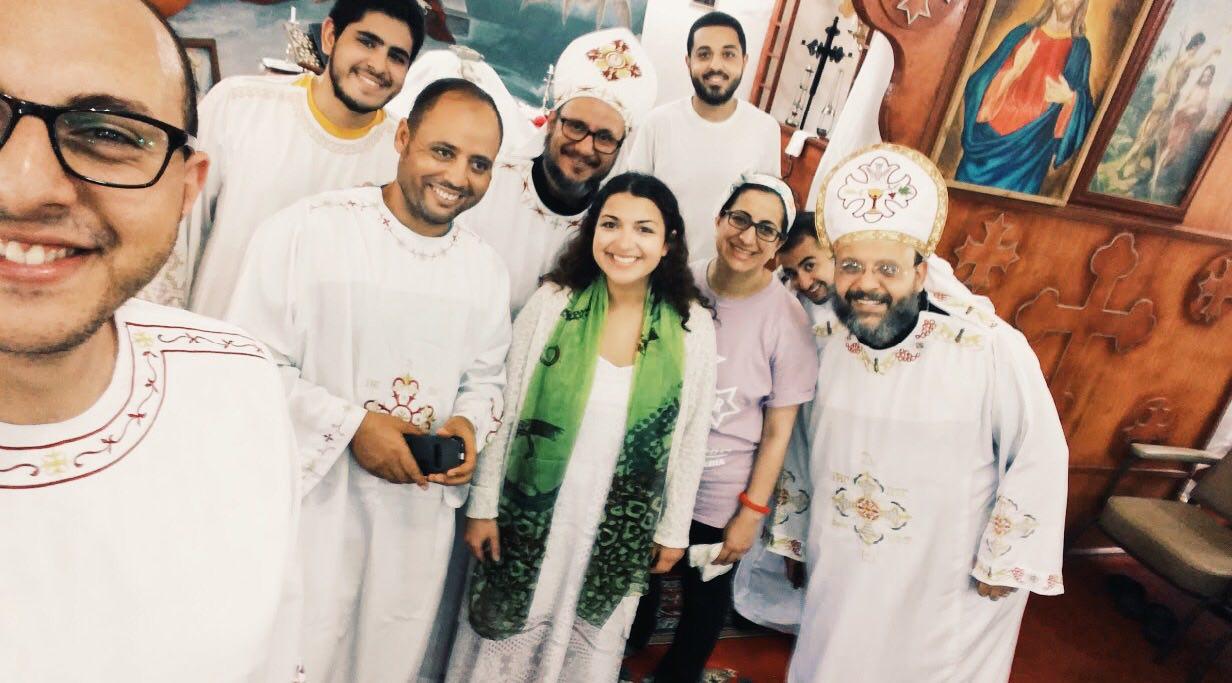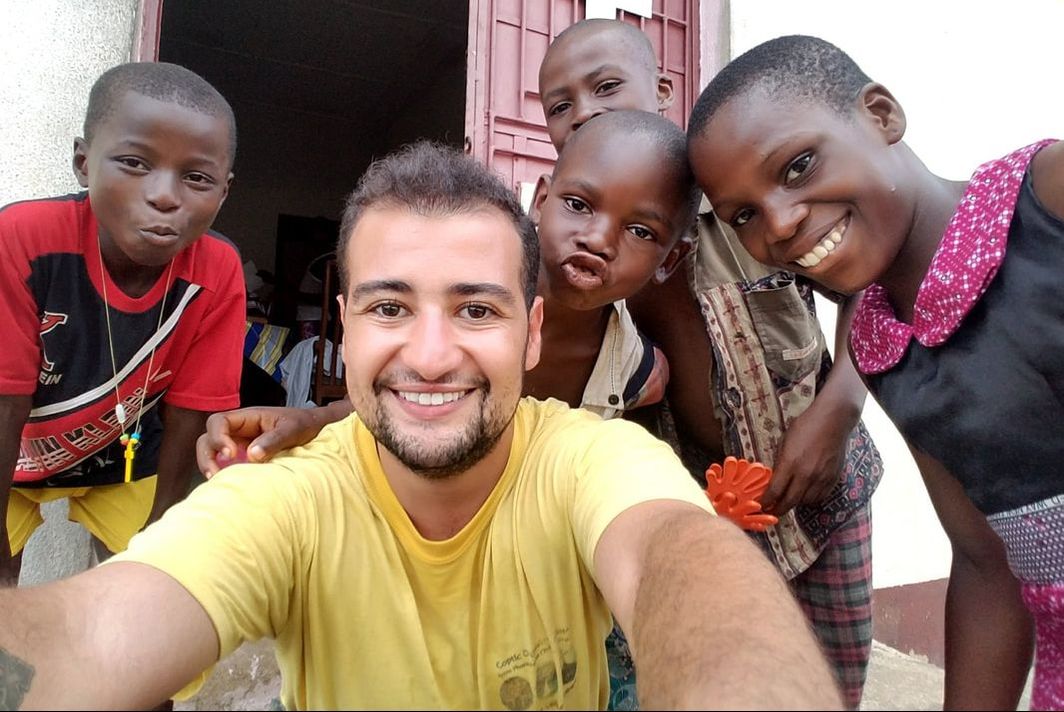|
There are two extreme approaches to answer this question. Calvinism is the idea that God’s sovereignty dictates every thought, word or action of every man, making man essentially a Robot. Conversely, Arminianism is the idea that man is completely autonomous, free to do as he chooses without any divine influence.
But, there is a balanced approach. God left us the choice to respond to His love or reject it, this gift of freedom is an expression of His great love. God created human beings free to make their own choices, but our freedom is in some ways limited. For example, we are not free to choose our parents, our race, or where we were born. We have free will within the boundaries set by God in accordance with His sovereign purpose for each individual. We are free to make our own choices and be responsible for them all, but our free will never override God’s providential will; there is not one thing that happens on this Earth that is not allowed by God. God is Omnipotent meaning all powerful, but He does not interfere with our free will unless we submit our free will to Him. Likewise, God is also Omniscient or all knowing, but God’s foreknowledge of the future does not interfere with our freedom. There is a story from Scripture that displays this concept very nicely. In the story of Joseph in the book of Genesis, his brothers sold him into slavery in Egypt. Years later when Joseph is reunited with his brothers he says to them, “You meant evil against me; but God meant it for good…” (Genesis 50:20). This indicates that while his brothers’ actions may have been evil, God still allowed them to practice their free will. They were fully accountable for selling Joseph into slavery, but God had certain plans and intentions related to their actions. God is not interested in having slaves and He doesn’t need us in any way, what He wants is a relationship with every single one of us. Like any other relationship, each person has a choice whether or not they would like to remain in the relationship. However, unlike a friend choosing not to be friends, a son or daughter cannot choose not to be a child of their parent anymore. Similarly, our identity is not something left for us to choose, we are made by Him in His image. Interested in reading more about this topic? Read "Is Our Future Determined or Free?" by Michael Ramsden to learn more.
1 Comment
To understand why God created us, a natural question we can ask is—why do parents choose to have children? Is it so they come into the world and suffer? Or is it to share the love and joy they have with them? Children are the product of love. God is complete in His Trinity, lacking nothing, so our creation was not out of need or loneliness, but out of love. Out of His love, He said, “Let Us make man in Our image, according to Our likeness." So God created man in His own image; in the image of God He created him; male and female He created them" (Genesis 1:26-27). He created us to enjoy Him and all that He has created and done for us. God created man to have a personal love relationship with Him. The reason we are here is to experience and enjoy that relationship. He saved us and gave us His Holy Spirit to bring us back to His image that was distorted after Adam's fall. However, God never enforces His love on us. He gives us the choice to answer His calling to taste, experience, and enjoy His love. "Behold, I stand at the door and knock. If anyone hears My voice and opens the door, I will come in to him and dine with him, and he with Me" (Revelation 3:20). That is how personal God wants a relationship with us. He wants to come into our hearts, feed us, fill us with His Holy Spirit, fix us from any brokenness, and shower us with His unconditional love.
By understanding the reason God created us—His love—we can begin to focus on our purpose in life which is to answer His calling of love, to taste it, live it, and share it with others. He is a personal God who desires an intimate relationship with us. God is calling us to love Him and says, “let me see your face, let me hear your voice; for your voice is sweet, and your face is lovely.” (Song of Solomon 2:14). The question is—Will you answer His call of love? This question may seem difficult to answer at first but when we look deeper, we understand that the question is based upon the wrong assumption. It implies that God is also governed by time the way we are. But how can He who created time, also be confined by time and its constraints? God is not confined by the same boundaries that govern our world such as space and time, and He has no beginning or end. He is infinite and eternal. When we understand this, we see how the question of “who created God?” is ultimately a fallacy. If we could answer this question, then logically the next question would be “who created the person who created God?” and so on and so forth. This would then create confusion about who we should worship, God or God’s creator? Where does it end? The reason why one may ask this question is because of our own observations of creation on earth. Human life, for example, has a definite beginning and end. We are finite beings made by a creator. But when we try to apply these same characteristics to God (the creator) the question does not stand. “In the beginning was the Word, and the Word was with God, and the Word was God. He was in the beginning with God. All things were made through Him, and without Him nothing was made that was made” (John 1:1-3). Christian author, George Bassilios, likened asking this question to asking “Who is the bachelor’s wife”? A bachelor, by definition, is unmarried and has no wife. Therefore, the question self-destructs and is rendered meaningless. God, by definition is not a physical or finite being, but an eternal being with no beginning.
When we understand this, it does not make sense to ask who created God. He is uncreated. Jesus answered and said to her, “Whoever drinks of this water will thirst again, but whoever drinks of the water that I shall give him will never thirst. But the water that I shall give him will become in him a fountain of water springing up into everlasting life.” (John 4:13-14) For a long time, I did not know what it felt like to be loved. From one broken experience to the next, I felt I had hit rock bottom. However, just when one of His children thinks they have completely lost all hope, He steps in. His love showed up in such a fierce way in my life. He destroyed my fears, shame, and everything else that burdened me. Words cannot describe His amazing Grace. His love is so much better than everything else I was chasing. I was experiencing God’s grace, the Healer, who loves His children back together again and loves you and me through other people. I remember one day I was sitting in Sunday school and one of my servants was telling us about the woman at the well. She asked us, “What did she do once she was filled with this love of Christ?” Joyfully, I answered, “mission!”. The woman by the well dropped the bucket, and ran to tell the others about this Christ who filled her. A while after that, I was getting coffee with Fr. Jacob and he mentioned the Nigeria mission trip, and I saw my opportunity to drop my bucket and run.  Fast forward to the spring of this year: One of the biggest lessons my God has shown me is that He is my provider. He will do all, be all, and guide me to all I will ever need. After a long year, with some spiritual ups and downs, I had a hard time finding that peace, joy, and strength I was sure would never leave. I starting thinking that external changes would make me feel better, but none of these things had a lasting effect. The change had to be made within. I started humbling myself to God again. He started to show me what I needed, spiritually and practically. It was never my morning routine or workout sessions that gave me this happiness and joy. It was my Him, my encourager, who loved me first and through this love all the other things were added. Nigeria was such a fruitful and abundant experience. I can honestly say that it wasn't the nature, mission, or atmosphere of the cities of Calabar and Cross River. It was His presence. It was the presence of almighty God among us that made the experience meaningful. I’m an evangelist? Praise Him for His mighty acts. Evangelism changed my life. Oh the joy. YES. Evangelism brought me so much joy. Let's tell others about the amazing love of God! Yes, Jesus continue to use me. God showed me in many ways why I was his daughter. “I would not trade this life for anything” I thought to myself one evening as the wind blew while I was standing on the balcony of the house we stayed at in Nigeria. Imagine that, years ago, I would have never thought a joy like this was possible. This is who my God is. He takes brokenness and uses it for his glory. A significant moment. It was around 10 p.m. We all sat outside on benches to watch a movie of the life of Christ. This night was so significant to me because a girl who I think I had seen before was sitting in front of me. She held my hand. I started to pray for her. I started to pray what others had once prayed for me about. That God would lead her to his dream for her life, that she’d be filled with joy, strength, and a hope caused by Christ. God’s work is not done, the journey has just begun. Monica Khalil It feels like before every mission trip, even though we do it anyway, we as missionaries are told to hold no expectations toward the upcoming trip. Expectations on a mission trip are like jaywalking: we’re not supposed to do it, but do it anyway, rather than wait for God’s light to turn green. Even Fr. Jacob admitted during the trip that while had been coaching us to let go of our expectations, he too was harboring expectations of his own, an example of how we all struggle with this.
I learned that all of us as missionaries, at some point in our experience, make the mistake of “jaywalking.” We rush across the street, just like we may rush our service, and the result is that we limit ourselves, and our opportunity to see God’s grace. Too often, I found myself saying, “okay, there’s nothing left to see, it’s time to go. On to the next street. There is nothing here.” When I use this analogy, I’m thinking of one particular evening in our trip. This situation is far more vivid in my memory than the others, not for lack of amazing experiences, but because I think it is a great example how our expectations can limit our opportunities to see God. Toward the end of our trip, we spent a few nights in the heart of Calabar, Nigeria, which we came to learn is an area with a well-established night life. Our priest asked the group if we would be willing to attend a prayer walk for the neighborhood, but if we were not comfortable, that we could choose to stay back and pray for the group. It’s just after 10PM, it’s rainy season, a storm is brewing outside as we speak, and I’m in a 3rd world country where, in my mind, anything can happen. To this day, I don’t know if I was alone in those feelings, because everyone elected to go. We had the option to stay back, but being that no one else chose to stay, I wouldn’t allow myself to either. Still, I didn’t see what good we could possibly do at night, on a weekend, when we would be walking into a sea of drunk people who probably don’t want to hear from a group of missionaries. I thought to myself—God did not equip me for this. When our group first arrived in Nigeria, it was the beginning of rainy season. As we had experienced it to that point, it had been excruciatingly long droughts of humidity, followed by brief, but ferocious rain storms. To the surprise of no one there, it began pouring the moment we stepped out of the gate of the state house, and already, I was second guessing our mission. As we made our way around the block, the storm persisted. We kept trucking along anyway. After only 10 minutes of walking, we could not have been more than ½ mile from the state house, and we found ourselves in a very dimly lit road with a bar, and a hoard of drunk night-goers. To my surprise, there were those who were happy to engage us, and out of that crowd emerged a handful of people who chose to come back to the state house with us. As we shared our time in prayer and reflection, we came to know these individuals and the dreams they had set for themselves. There was one individual, for example, who had the dream of opening a small grocery in the local marketplace. We were able to help this individual meet the needs to accomplish that goal, and we were able to help her rekindle her relationship with Christ. I still believe, as strong as her relationship is with God, I believe that the true blessing was that our group was allowed to meet this person, experience her story, and witness God’s work through her resilience. The application I take from this experience is to never set limits on God’s work, and how I can serve him. I have made it my personal priority to simply open myself up, and ask Him, “how are you willing to let me see you today.” |
AuthorWe are many voices, united by the same Spirit, driven to Serve Apostolic Love and Testimony. Archives
February 2024
Categories
All
|





 RSS Feed
RSS Feed